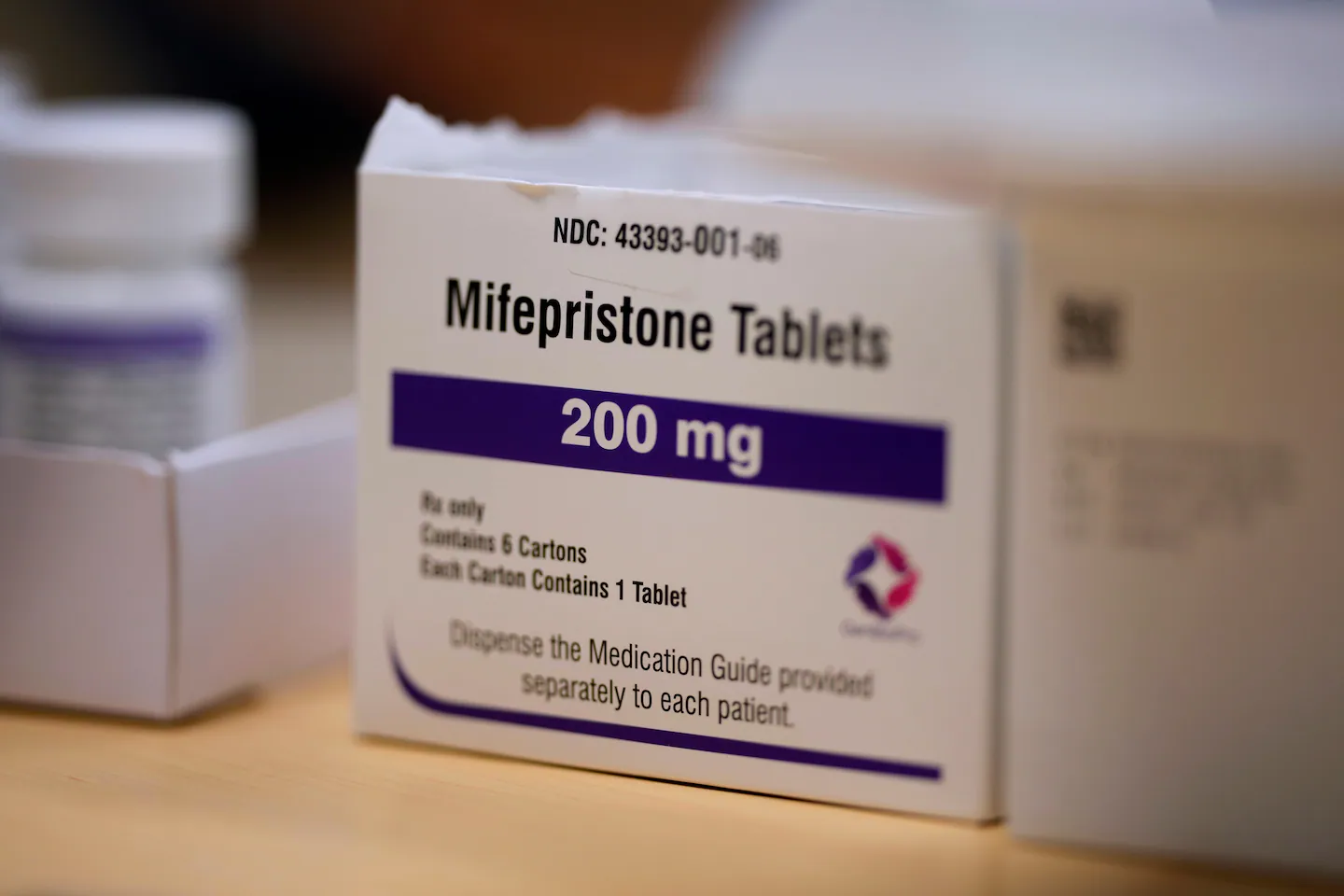
Fewer people had abortions in the first half of 2025 in states that allow the procedure, a report found, marking the first such decline in the three years since Roe v. Wade was overturned.
The number of patients who crossed state lines for an abortion also decreased, according to the report released Tuesday by the Guttmacher Institute, which supports abortion rights.
But the numbers don’t necessarily mean abortions are dwindling nationwide. Guttmacher only collected data from clinicians providing in-person and online abortion care in states without abortion bans. The institute said the decline could be due in part to the burgeoning availability of medication abortion in states with near-total bans, which is not accounted for in the data.
Abortion providers are remotely prescribing and mailing abortion pills to patients in all 50 states regardless of bans, enabling women to end their pregnancies from the comfort of their homes. Providers who practice in eight Democratic-led states can do this work legally under “shield” laws that explicitly allow them to offer abortion pills regardless of where patients live and protect them from out-of-state prosecution.
While the data reflect declines in interstate travel and clinician-provided abortions in states where abortion is legal, it’s possible that more women instead chose to terminate their pregnancies this year with abortion pills — facilitated by shield laws.
Advertisement
“It’s an incredibly important innovation,” said Isabel DoCampo, a Guttmacher senior research associate.
From January through June, clinicians in states without near-total bans provided 518,940 abortions, a 5 percent decrease from the same period in 2024. Also in that time frame, out-of-state travel for abortions declined by 8 percent, Guttmacher found. That travel had more than doubled in the first six months of 2023, after the Supreme Court overturned the constitutional right to abortion.
Advertisement
Shield laws, which states began enacting in 2023, then changed the landscape of abortion in the United States.
Medication abortion, typically a two-drug regimen, is recommended for women who are up to 10 weeks pregnant. It is often more appealing than arranging travel to other states, which comes with additional costs, such as transportation and lodging. A separate report from the Society of Family Planning found that by the end of 2024, one quarter of abortions in the United States were provided via telehealth, reflecting the growing reliance on medication abortion.
California Governor Gavin Newsom, a Democrat, sought to further safeguard access to abortion pills when he signed a law Friday allowing providers to dispense the medication without listing the name of the patient, prescriber, or pharmacist. The measure is an attempt to protect clinicians from legal action initiated by antiabortion activists and lawmakers, mainly in Texas.
Republican lawmakers in that state passed a bill last month that will allow private citizens to sue anyone who prescribes, manufactures, or distributes abortion pills to Texas residents. Texas and Louisiana have also brought first-of-their-kind legal cases against doctors based in New York and California, accusing them of violating state abortion laws. These battles are far from resolved, and legal experts expect the question of shield-law work to ultimately land on the Supreme Court’s docket.
Several state attorneys general are also challenging the Food and Drug Administration’s regulation of mifepristone, seeking to curb access to one of two pills often used in medication abortion. Health and Human Services Secretary Robert F. Kennedy Jr. confirmed last month that the FDA had begun to review mifepristone, which has held the agency’s approval for 25 years.
Advertisement
In a Sept. 19 letter co-signed by FDA commissioner Marty Makary and sent to more than a dozen Republican attorneys general who pressed the issue, Kennedy wrote that the Trump administration “will ensure that women’s health is properly protected by thoroughly investigating the circumstances under which mifepristone can be safely dispensed.”
The concerns raised by the conservative attorneys general, Kennedy wrote, “merit close examination.”



